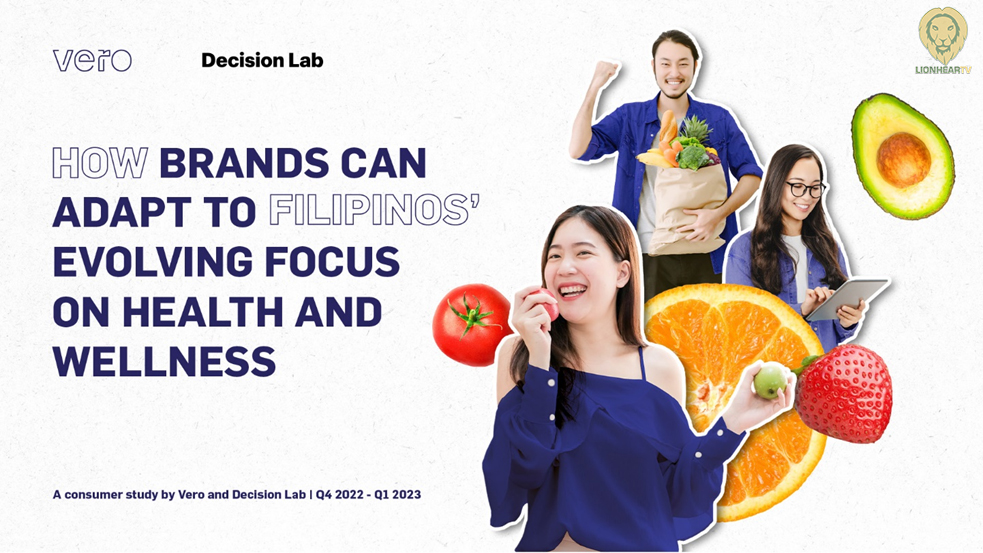Vero and Decision Lab released a research paper titled “How Brands can Adapt to Filipinos’ Evolving Focus on Health and Wellness.”

In the paper, representatives from Vero, Decision Lab, and professionals in the healthcare industry discuss the impact of COVID-19 and rising inflation on Filipinos’ dietary choices.
Nicole Briones, Operations Director at Vero Philippines, explains that “an increasing number of consumers are taking steps to improve their eating habits and lifestyle in response to current circumstances. With a better understanding of the benefits of healthy living, they are also showing greater openness to brands and products that provide them with holistic health and wellness options.”
Vero and Decision Lab conducted research in Metro Manila and further afield, surveying 830 respondents via 31 questions. In parallel, Vero’s Data & Insights team also analyzed Google search data and discussions on social media platforms between 2018 and 2022, with further research in 2023.
Through its white paper, Vero aims to equip brands with accurate insights into the shifts taking place in Filipino culture and lifestyle, and how these changes are reflected in emerging health and food habits. By doing so, Vero seeks to help brands stay up to date with the latest trends and cater to the evolving needs of Filipino consumers.
Inflation is Reinvigorating Filipino Recipes with a New Focus – Health and Wellness
In the Philippines, inflation is at its highest point since 2009, with food inflation reaching 11.2% in January 2023. The cost of essential goods has soared, and prices for rice, sugar, eggs, fruits, and vegetables are high. Despite this, Filipinos are finding creative ways to get their five-a-day. According to Thach Nguyen, Data & IQ Director at Vero, “consumers in the Philippines are opting to prepare lunch boxes, known as baon, to take to work, rather than frequenting their usual fast-food spots.”
Online health and wellness influencers are catering to Filipino netizens by offering modified versions of their favorite traditional recipes, while also emphasizing budget-friendly options. One such example is blogger and influencer Ashley, known as Eat Figs, Not Pigs, who strives to transform beloved Filipino dishes into vegan alternatives, while simultaneously educating the public about the health advantages of a vegan lifestyle.
Filipino consumers place greater importance on immunity and mental health
Vero’s research shows that consumers take vitamins and supplements in their daily health rituals. Seventy percent of Millennials and 60% of Gen Z say they take vitamins and supplements weekly, with 75.5% of Gen Z and 85% of Millennials using supplements to help boost immunity.
In addition, “more energy” and “better mental health” also rank high when it comes to reasons why Filipinos eat healthily. Nearly 60% of those surveyed said they choose to eat healthily to positively impact their mental health.
“Our brain processes what we think and how we feel, but all too often we separate the notion of our mental health from how healthy we are and how we take care of our bodies,” said Julian Luis N. Agustin, MP, RPsy, Psychologist at In Touch Community Services, a leading mental health services provider in the Philippines.
Brands Should Build Messaging Around Affordability, Convenience, and Holistic Healthy Eating
As Filipinos look for cheap, healthy products, brands can help consumers by providing messaging that enables them to understand that healthy options take little time to prepare or are expensive.
“Filipinos are becoming more competent buyers. They have gone beyond concerning themselves with the superficial effects of food consumption. More of us realize the many impacts of our food choices and consumption on our overall well-being. Everyone has their idea of what physical wealth looks like and feels like, and now, they’re more empowered to achieve it,” Gella Gesultura, Associate Creative Director at Vero Philippines, said. “Filipinos’ needs are becoming more sophisticated, and brands should investigate this deeper as they innovate in offering better and healthier options.”
To learn more about Filipinos’ health and wellness needs and discover more insights for brands, read the full white paper here.


